Disclosure: This article contains affiliate links. We may earn a commission from purchases at no extra cost to you, which helps our travel content.
As someone who typically travels with educational goals in mind—whether exploring desert ecosystems with my law colleagues or studying the historical context of public murals—stepping into Vienna's world of luxury was a delightful departure from my usual adventures. This imperial city, with its Habsburg grandeur and coffee house culture, offers a perfect canvas for a romantic weekend of indulgence. While my work as a public defender usually has me seeking out the social narratives of a destination, Vienna invited me to temporarily set aside my analytical lens and simply revel in its refined pleasures. From the moment the plane touched down at Vienna International Airport, I found myself enchanted by a city where historical opulence meets modern sophistication in the most seamless of dances. Join me as I share how to experience Vienna's imperial splendor over a perfect autumn weekend—when the summer crowds have dispersed, the weather remains mild, and the golden light bathes the city's baroque architecture in a magical glow.
Where Royalty Rests: Luxury Accommodations in Vienna
Vienna's luxury hotel scene strikes that perfect balance between historical grandeur and modern comfort—something I've come to appreciate after years of prioritizing practicality in my travels. For this special weekend escape, I chose the Hotel Sacher Wien, an institution as quintessentially Viennese as the famous chocolate torte that bears its name.
Stepping into the lobby feels like entering a time capsule of Habsburg elegance, with its crystal chandeliers, plush velvet furnishings, and attentive staff who seem to anticipate your needs before you've even formulated them. My corner suite overlooked the Vienna State Opera House—a view that immediately connected me to the city's cultural heartbeat. The marble bathroom featured Sacher's signature chocolate-infused toiletries, a whimsical touch that brought a smile each morning.
For those seeking a more contemporary luxury experience, the Park Hyatt Vienna occupies a former bank building in the Goldenes Quartier. The former cashier hall has been transformed into a stunning swimming pool lined with golden tiles—a perfect place to unwind after a day of exploration. Having visited on a previous trip with colleagues, I can attest to the impeccable service and attention to detail.
The Hotel Imperial, originally built as a palace for the Prince of Württemberg, offers perhaps the most authentic royal Viennese experience. The stately suites feature soaring ceilings, antique furnishings, and the services of a personal butler. While exploring the property, I couldn't help but imagine the diplomatic conversations and artistic gatherings that must have taken place within these walls over centuries.
Whichever luxury property you choose, I highly recommend requesting a room with a view of either the Ringstrasse or one of Vienna's historic landmarks. There's something magical about drawing back the curtains to reveal the golden dome of the Secession Building or the spires of St. Stephen's Cathedral bathed in morning light. To enhance your in-room experience, I found my portable espresso maker to be an unexpected luxury—allowing me to enjoy a perfect cup on my balcony while planning the day's adventures.
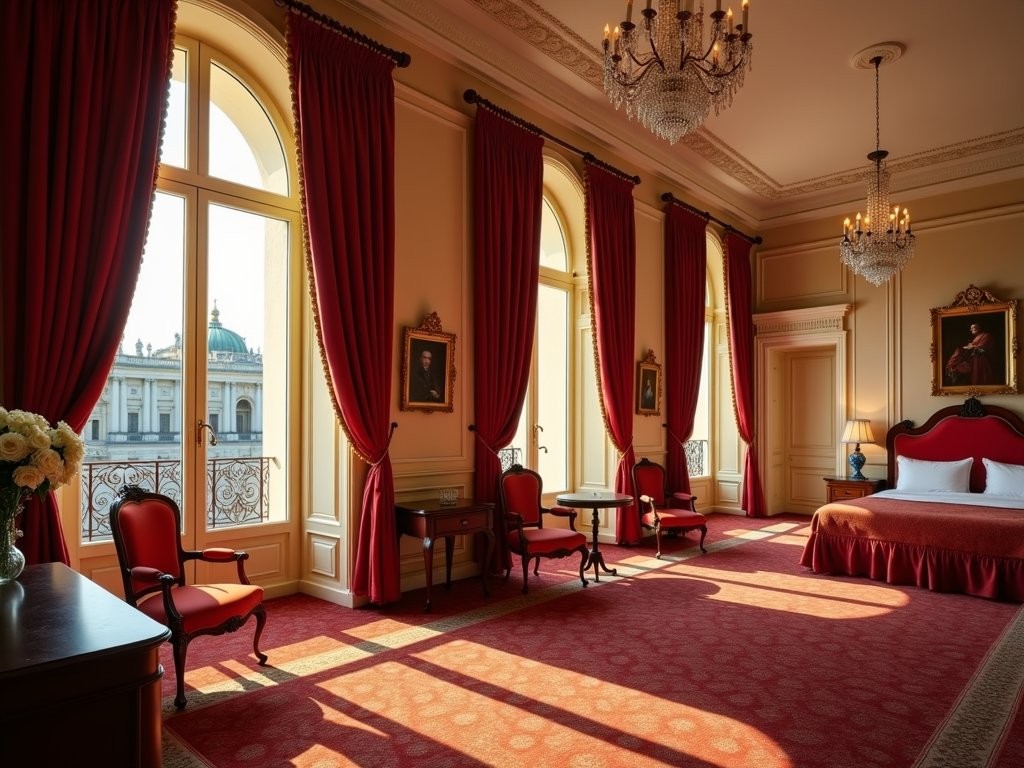
💡 Pro Tips
- Book accommodations at least 3 months in advance for fall season, which coincides with Vienna's cultural calendar highlights
- Request a room on a higher floor for better views and less street noise, particularly important near the Ringstrasse
- Most luxury hotels offer complimentary pressing of two garments upon arrival—perfect for formal evening attire
The Imperial Experience: Palaces, Museums, and Architectural Splendor
Vienna's architectural landscape reads like a textbook of imperial ambition—something that fascinates me as someone who often explores how public spaces reflect societal values. The Habsburg dynasty's 640-year rule left an indelible mark on the city, most notably through the magnificent Schönbrunn Palace. While tourists flock to Schönbrunn year-round, the luxury traveler should arrange a private early-morning tour before the gates open to the public. Walking through the 1,441-room summer residence without the crowds is a transcendent experience—one where you can almost hear the rustle of Empress Maria Theresa's gown against the parquet floors.
During my visit, I arranged such a tour through the hotel concierge, which included access to rooms not on the standard visitor route. The guide, a cultural historian with encyclopedic knowledge of Habsburg family drama, transformed what could have been a mere appreciation of ornate rooms into a nuanced understanding of the personal and political forces that shaped European history.
The Hofburg Palace complex in central Vienna offers another imperial immersion. Rather than attempting to see it all, I focused on the Imperial Apartments and the Sisi Museum, which offers insight into the complex personality of Empress Elisabeth. The Imperial Treasury houses the crown jewels, including the 10th-century Imperial Crown of the Holy Roman Empire—a masterpiece of medieval craftsmanship that left me speechless.
For art enthusiasts, the Kunsthistorisches Museum (Museum of Art History) demands at least half a day. The building itself is as much a masterpiece as the collections it houses. I found myself particularly drawn to the Bruegel collection, the largest in the world. Standing before his Tower of Babel in the quiet morning hours (another advantage of luxury travel—arranging private viewings) offered a moment of contemplation on human ambition that resonated with me professionally.
Between these grand institutions, Vienna's streets offer architectural wonders at every turn. The Secession Building, with its distinctive golden dome, represents the city's brief but significant break with traditionalism. For photography enthusiasts like myself, carrying a premium camera lens is worth the investment—Vienna's architectural details and golden autumn light demand equipment that can capture nuance and depth.
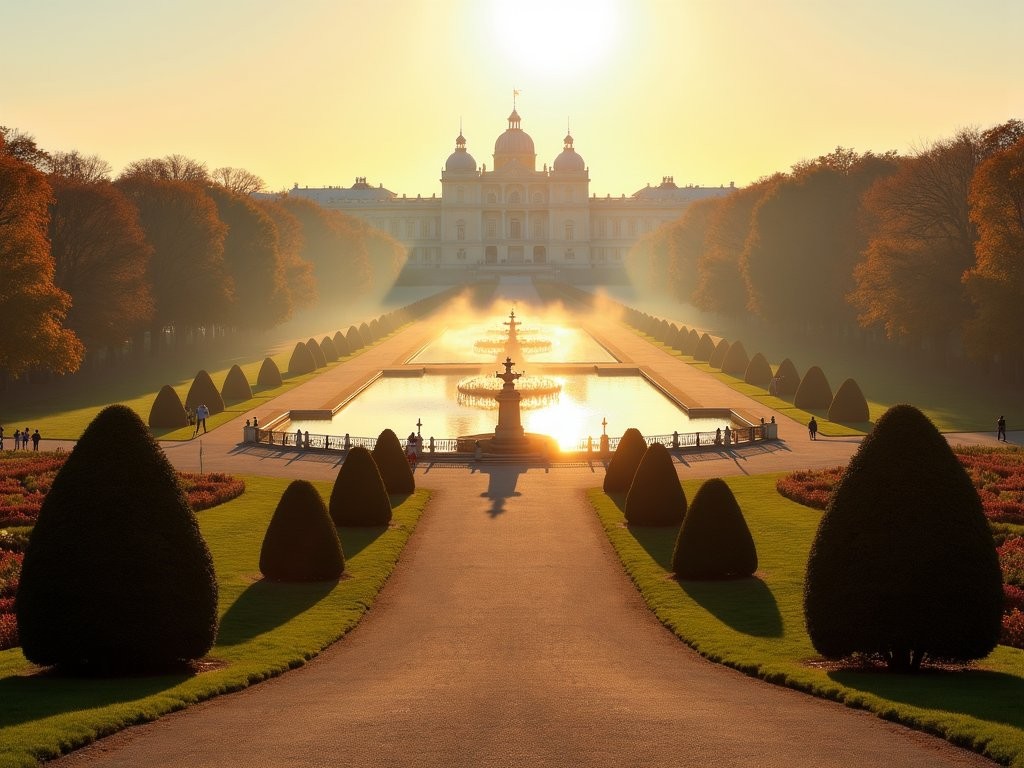
💡 Pro Tips
- Arrange private or early-access tours through your hotel concierge for a more intimate experience of popular attractions
- Visit the Belvedere Palace in late afternoon when the light is perfect for viewing Klimt's 'The Kiss'
- The Third Man Museum offers a fascinating alternative perspective on Vienna's post-war history—make an appointment as opening hours are limited
A Symphony for the Senses: Vienna's Musical Heritage
If architecture is Vienna's body, music is undoubtedly its soul. As a city that nurtured Mozart, Beethoven, Schubert, and Strauss, Vienna offers musical experiences that transcend the ordinary concert-going experience. The challenge for the luxury traveler is not finding quality performances, but selecting among the embarrassment of riches.
The Vienna State Opera (Wiener Staatsoper) stands as the crown jewel of the city's musical life. While tickets for popular performances sell out months in advance, luxury travelers have options beyond the standard booking channels. Your hotel concierge can often secure premium seats even for seemingly sold-out performances. Alternatively, the Opera has a little-known service for last-minute luxury experiences that include private box seats and champagne service during intermission.
During my stay, I attended a performance of Mozart's The Magic Flute. The experience began two hours before curtain with a private backstage tour, where I witnessed the technical wizardry that brings productions to life and briefly met one of the lead performers. The performance itself was transcendent—the acoustics in the historic opera house are so perfect that even the softest notes reached every corner with crystalline clarity.
For chamber music, the Musikverein's Golden Hall offers perhaps the most refined acoustic experience in the world. Home to the Vienna Philharmonic's New Year's Concert, this venue practically vibrates with musical history. I attended a Sunday morning concert featuring Schubert's works performed in the very city that inspired them—a deeply moving experience that connected me to Vienna's cultural lineage.
Beyond the formal concert halls, Vienna offers more intimate musical experiences. The Mozarthaus, where the composer lived from 1784 to 1787, hosts evening chamber concerts in the intimate vaulted basement. Hearing Mozart's works performed just floors below where he composed them creates an almost supernatural connection to musical history.
For those interested in capturing these musical moments, I recommend bringing a noise-cancelling earbuds for the walking tours that explore composers' homes and haunts throughout the city. The audio quality enhances the experience of listening to relevant musical selections while standing in the very locations where they were composed.
A truly unique luxury experience combines music with another Viennese specialty: coffee. Several historic cafés host morning piano recitals, where you can sip your Melange (Vienna's answer to cappuccino) while a skilled pianist plays Strauss waltzes. At Café Central, I experienced this perfect pairing of sensory pleasures as sunlight streamed through the arched windows, illuminating the vaulted ceilings that once echoed with the conversations of Freud, Trotsky, and Stefan Zweig.
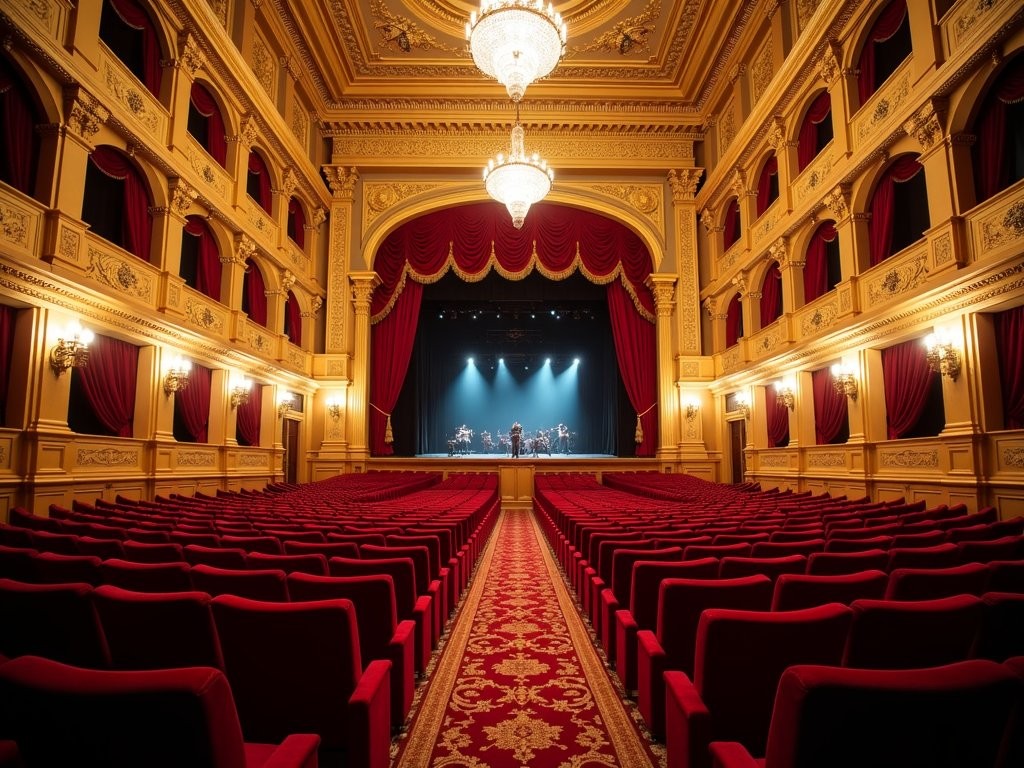
💡 Pro Tips
- Book opera tickets at least 4-6 months in advance, or work with a luxury concierge service for last-minute premium experiences
- For the Vienna Philharmonic, standing room tickets offer surprisingly excellent acoustics and can sometimes be obtained day-of
- Download the Vienna Classical Music app before your trip to access up-to-date performance schedules across all venues
Culinary Vienna: From Coffee Houses to Michelin Stars
Vienna's culinary scene exists at a fascinating intersection of imperial history, multicultural influence, and contemporary innovation—much like the social tapestries I explore in my professional life. The city that perfected the coffee house as a cultural institution now offers dining experiences that range from refined interpretations of traditional Austrian cuisine to boundary-pushing gastronomy.
Let's begin where many Viennese days do: the coffee house. These institutions are far more than places to consume caffeine—they're cultural landmarks where time moves at a different pace. Café Sacher, adjacent to my hotel, serves the original Sachertorte, a chocolate cake so iconic it was once the subject of a nine-year legal battle. While tourists queue outside for a taste, hotel guests enjoy privileged access to a reserved section. The ritual of being served this perfect chocolate creation on fine porcelain, accompanied by unsweetened whipped cream and a precisely prepared Melange coffee, epitomizes Viennese refinement.
For a more traditional coffee house experience, Café Central's neo-Gothic architecture and literary history create an atmosphere of intellectual luxury. I spent one morning working on notes for this very article beneath its vaulted ceilings, channeling the energy of the writers and thinkers who made this café their office over the past 150 years.
When it comes to fine dining, Vienna has evolved beyond the schnitzel and strudel of popular imagination. Steirereck, with two Michelin stars, occupies a modernist glass structure within the Stadtpark. Chef Heinz Reitbauer's innovative approach to Austrian ingredients resulted in one of the most memorable meals of my life. The freshwater mountain fish cooked tableside in beeswax was a technical marvel that somehow managed to taste both novel and deeply connected to Austrian culinary tradition.
For a more traditional luxury dining experience, Silvio Nickol at Palais Coburg offers artfully plated cuisine in a historic setting. The wine cellar houses over 60,000 bottles, including some dating back to the 18th century. The sommelier's expertise in Austrian wines opened my eyes to the quality and diversity of the country's vineyards.
No luxury culinary tour of Vienna would be complete without experiencing a Heurigen—a traditional wine tavern typically found in the Vienna Woods. For an upscale version, Mayer am Pfarrplatz offers private tastings in the house where Beethoven once lived and composed parts of his Ninth Symphony. The connection between place, history, and gastronomy created a multisensory experience I won't soon forget.
To capture the essence of Vienna's culinary traditions at home, I purchased a Viennese cookbook that offers authentic recipes with historical context—continuing my tradition of bringing educational souvenirs from my travels.
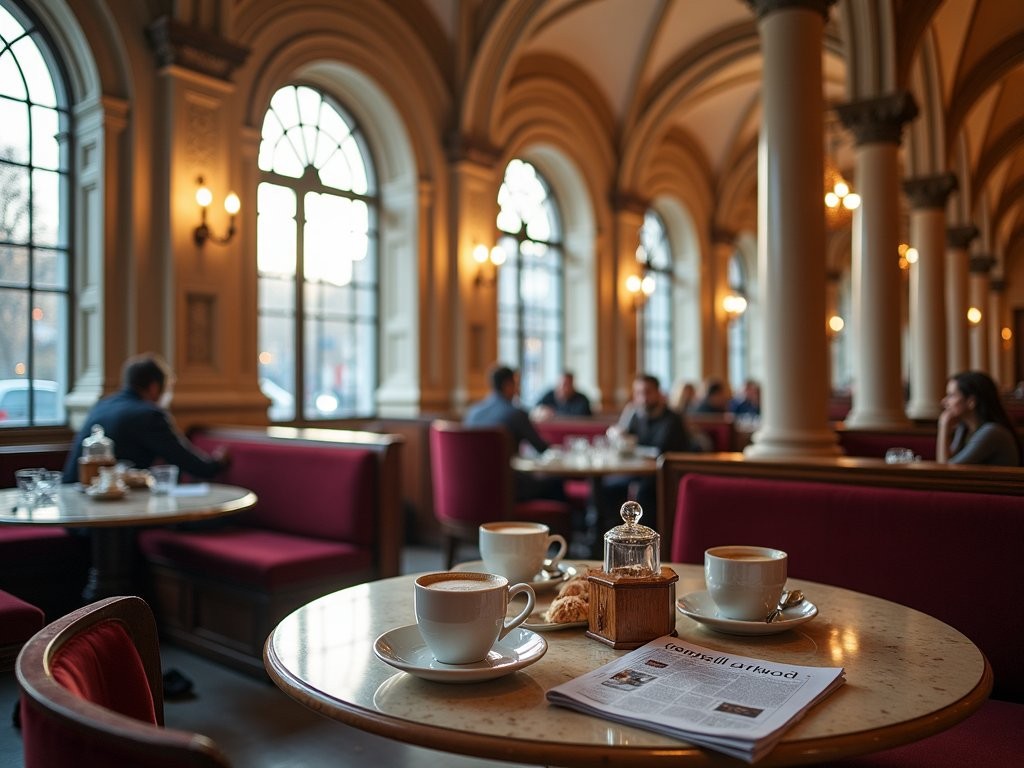
💡 Pro Tips
- Make restaurant reservations at least one month in advance, particularly for Michelin-starred establishments
- Request window seating at Café Central to people-watch along Herrengasse while enjoying your coffee
- For a truly special experience, ask your hotel to arrange a private cooking class focusing on Viennese pastry techniques
Beyond the Ringstrasse: Luxury Day Trips and Hidden Vienna
While Vienna's historic center offers endless fascination, the luxury traveler would be remiss not to venture beyond the Ringstrasse to discover the city's less obvious treasures and nearby escapes. As someone who typically seeks out educational experiences in my travels, I found these excursions offered both pleasure and deeper cultural understanding.
The Vienna Woods (Wienerwald) begin where the city ends, offering a refreshing contrast to urban elegance. Rather than joining a standard tour, I arranged a private guide and driver for a customized day exploring this UNESCO Biosphere Reserve. We visited the Kahlenberg for panoramic views of the city and vineyards, then continued to the Abbey of Klosterneuburg, where I enjoyed a private tour of their wine cellars followed by a tasting of their exceptional Grüner Veltliner.
For art lovers seeking contemporary experiences, a visit to the private Liechtenstein Garden Palace provides access to one of the world's greatest private art collections in an intimate setting. Unlike the national museums, this princely collection can be viewed by appointment only, creating an exclusive experience where you might find yourself alone with masterpieces by Rubens and Raphael.
A day trip to the Wachau Valley offers another dimension of Austrian luxury. This picturesque stretch of the Danube Valley is home to terraced vineyards, apricot orchards, and medieval villages. Rather than joining the tourist boats, I chartered a private vessel with a local captain who shared family stories of life on the river while navigating to hidden coves and viewpoints inaccessible to larger craft.
In Dürnstein, we docked for a private picnic prepared by a local chef, featuring regional specialties paired with crisp Rieslings from nearby vineyards. The meal was served on a hillside overlooking the ruins of the castle where Richard the Lionheart was once imprisoned—history as the backdrop to gastronomic pleasure.
Back in Vienna, I discovered luxury in unexpected places. The Spanish Riding School offers behind-the-scenes morning tours where you can watch the Lipizzaner stallions during their training sessions—a much more intimate experience than the formal performances. My guide, a former rider, provided insights into the centuries-old traditions of classical dressage that continue in this living museum of equestrian art.
For those seeking unique souvenirs, bypass the tourist shops and head to the workshops where traditional crafts continue. At Mühlbauer, sixth-generation hatmakers create bespoke headwear using techniques unchanged since 1903. During my visit, I was measured for a custom-made hat that arrived at my home weeks later—a wearable memory of Vienna's commitment to craftsmanship.
To navigate these off-the-beaten-path experiences efficiently, I relied heavily on my translation earbuds which allowed me to communicate effortlessly with local artisans and guides beyond the tourist areas, creating more authentic connections.
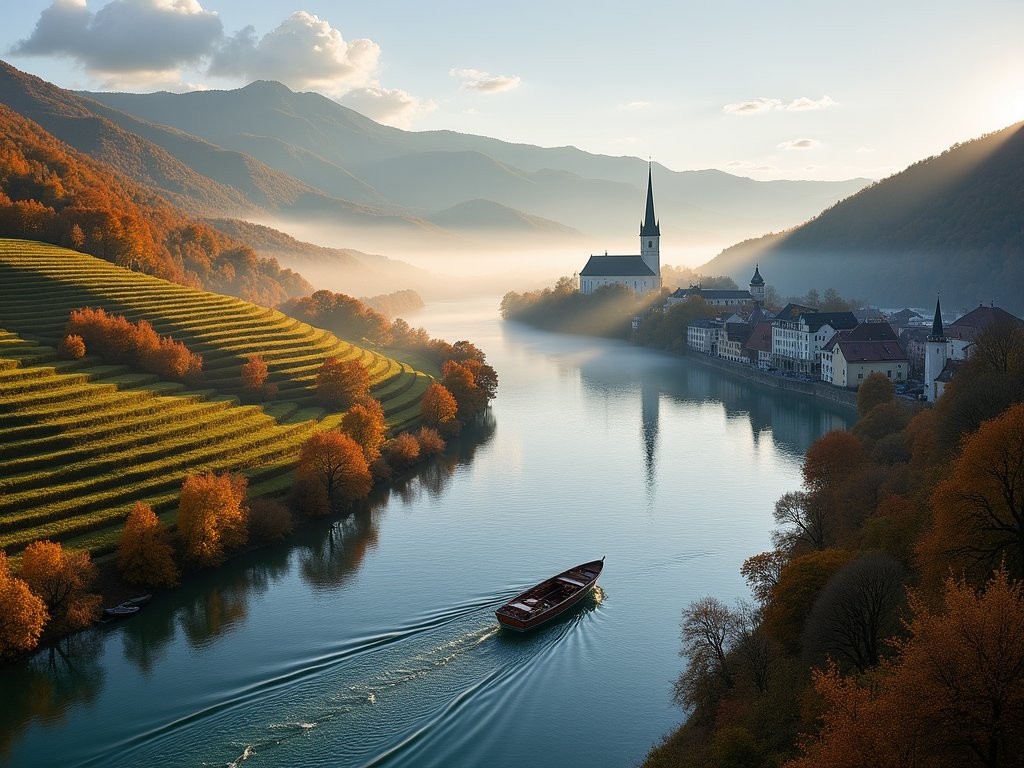
💡 Pro Tips
- Charter a private guide with expertise in Habsburg history for deeper context during palace visits
- Visit the Wachau Valley on weekdays to avoid weekend crowds from Vienna and enjoy more personal service
- Book the first appointment of the day at the Spanish Riding School's morning exercises for the best viewing positions
Shopping Vienna: From Imperial Purveyors to Contemporary Design
Vienna's shopping scene reflects its dual identity as keeper of imperial traditions and incubator of contemporary creativity. For the luxury traveler, this means access to both historic establishments that once served the Habsburg court and cutting-edge boutiques showcasing Austrian design innovation.
The traditional heart of luxury shopping lies along Kohlmarkt and Graben, where imperial warrant holders (K.u.K. Hoflieferanten) continue centuries-old traditions of craftsmanship. At Demel, court confectioners since 1786, the shopping experience transcends mere consumption. Beyond purchasing exquisitely packaged confections, visitors can observe master pastry chefs at work through a glass wall—an educational element I always appreciate when traveling.
For bespoke accessories, a visit to R. Horn's on Stephansplatz reveals the art of leatherworking elevated to its highest form. This family workshop creates custom pieces that combine traditional techniques with contemporary design. I commissioned a small leather portfolio embossed with my initials—a functional reminder of Vienna's dedication to craftsmanship.
Lobmeyr, purveyors of crystal to the imperial court since 1823, offers chandeliers and glassware of extraordinary refinement. Beyond their historical pieces, they collaborate with contemporary designers to create modern interpretations of traditional crystal arts. The lighting in their showroom is specifically designed to demonstrate how their crystal catches and refracts light—a mesmerizing display of functional artistry.
For those interested in contemporary Austrian design, the area around the MuseumsQuartier showcases Vienna's creative renaissance. At Werkprunk, emerging designers display limited-edition pieces that often incorporate traditional techniques in unexpected ways. I discovered a jewelry designer creating modern pieces using traditional Viennese enameling methods—the perfect blend of heritage and innovation.
Austrian fashion has a distinct aesthetic that combines precision tailoring with sustainable practices. At Mühlbauer, the aforementioned hatmakers, tradition meets contemporary design in pieces that have been featured in international fashion magazines. Their atelier tours offer insight into a craft that has nearly disappeared elsewhere.
For literary treasures, Shakespeare & Company Booksellers offers rare editions and first printings in an atmosphere of hushed reverence for the written word. Their collection of books about Vienna, including hard-to-find English translations of Austrian authors, provided me with cultural context that enhanced my understanding of the city.
When shopping for high-value items, I always use my travel credit card which offers purchase protection and eliminates foreign transaction fees—a practical consideration even when indulging in luxury shopping.
Perhaps the most precious souvenir I acquired was music—not just recordings, but actual sheet music from Doblinger, music publishers since 1817. Their collection includes facsimile editions of manuscripts by composers who lived and worked in Vienna, allowing me to bring home a tangible connection to the city's musical heritage that continues to enrich my life long after the journey ended.
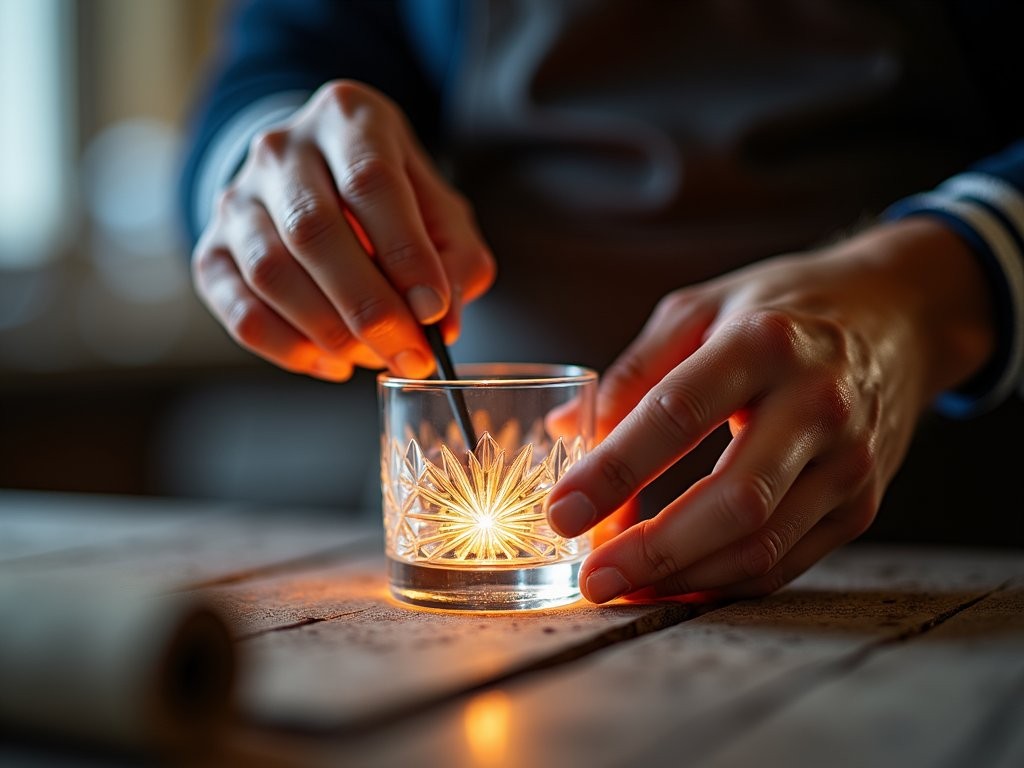
💡 Pro Tips
- Visit the Dorotheum auction house even if you don't plan to bid—their preview days offer museum-quality exhibitions without admission fees
- Shop for unique food souvenirs at Julius Meinl am Graben, where the gourmet food hall offers exclusive products unavailable elsewhere
- Many luxury boutiques offer tax-free shopping for non-EU residents—ask for the forms and have your passport ready
Final Thoughts
As my weekend in Vienna drew to a close, I found myself reflecting on how this imperial city had temporarily transformed me—a traveler typically focused on educational experiences and cultural context—into someone who could fully embrace luxury for its own sake. Vienna accomplishes this transformation effortlessly because its luxury is never hollow or merely ostentatious; it is deeply rooted in history, craftsmanship, and cultural significance. The coffee house isn't just a place to consume expensive beverages but a living institution that shaped European intellectual life. The opera isn't merely entertainment but the continuation of a musical tradition that changed Western culture. Even the pastries tell stories of empire, innovation, and cultural exchange. In this way, Vienna reconciled my usual approach to travel with the pleasure of indulgence. As you plan your own Viennese escape, remember that true luxury here lies not just in thread counts and champagne service, but in accessing experiences that connect you to centuries of refinement and creativity. Vienna doesn't demand that you choose between pleasure and meaning—it offers them as inseparable companions, much like the perfect pairing of a Sachertorte and Melange coffee on a golden autumn afternoon.
✨ Key Takeaways
- Vienna's luxury experiences are deeply intertwined with its cultural and historical significance, offering substance beyond mere indulgence
- Fall is the ideal season for a luxury weekend, offering pleasant weather, fewer crowds, and coinciding with the opening of the cultural season
- Private access and guided experiences transform even well-known attractions into exclusive encounters with Vienna's imperial heritage
📋 Practical Information
Best Time to Visit
September to early November
Budget Estimate
$1,000-1,500 per day for a couple
Recommended Duration
3-4 days
Difficulty Level
Easy

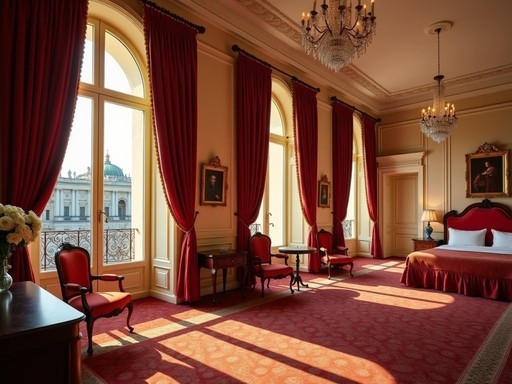
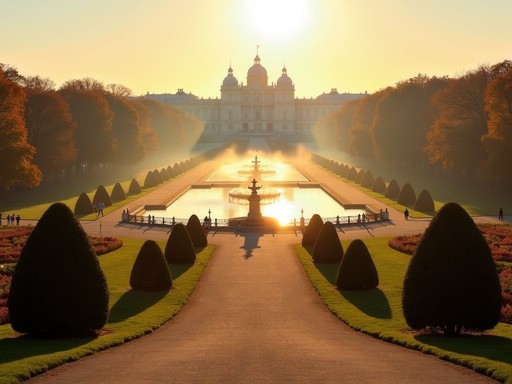
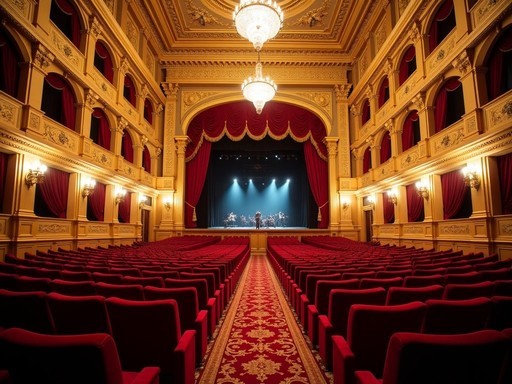
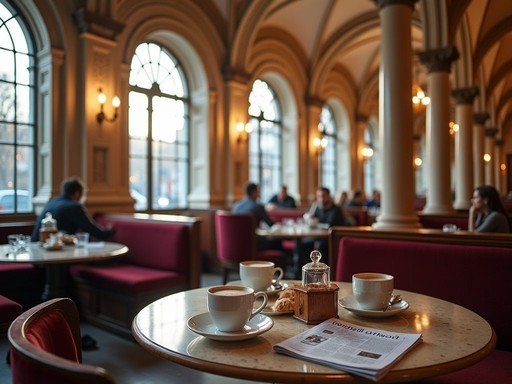
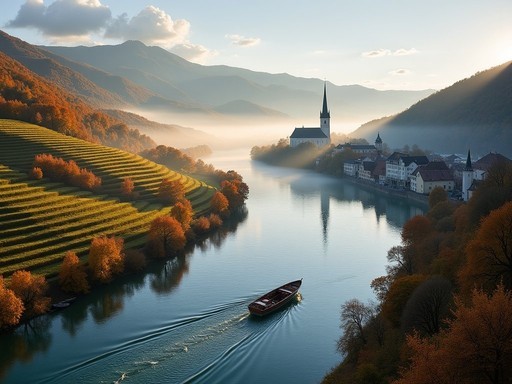
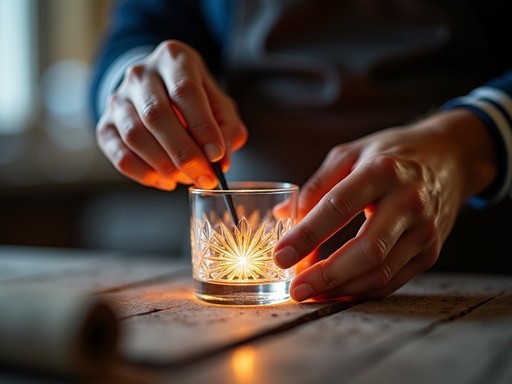


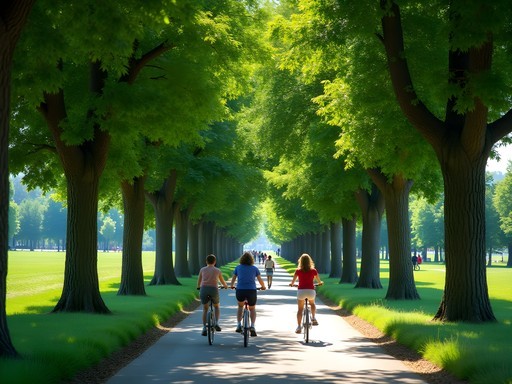
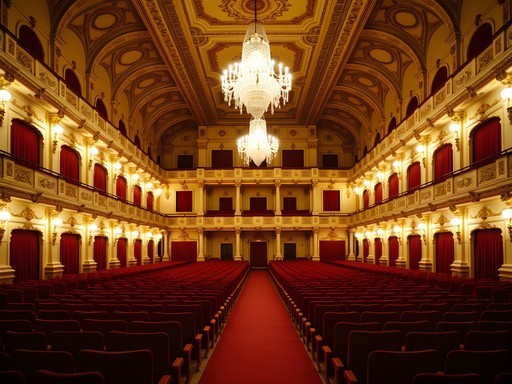
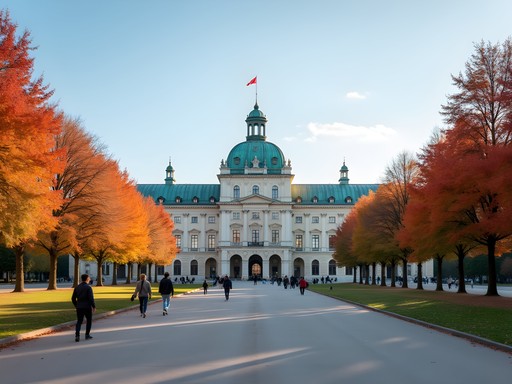
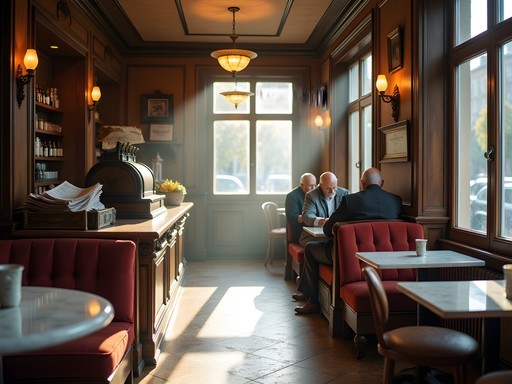
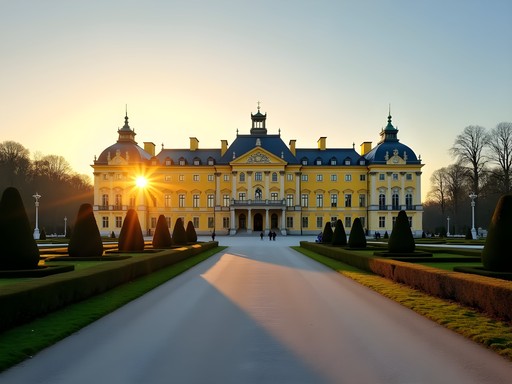
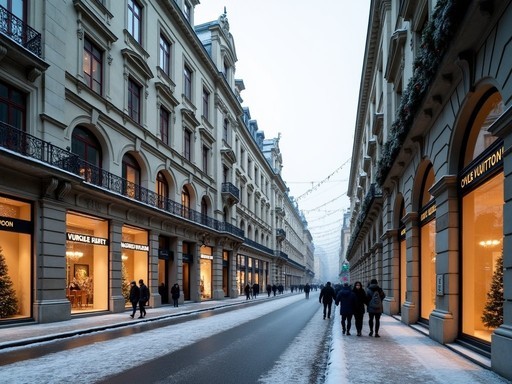
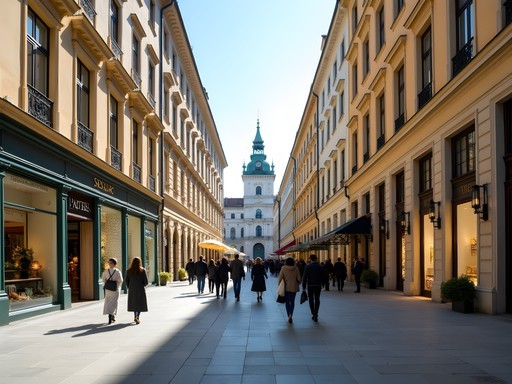
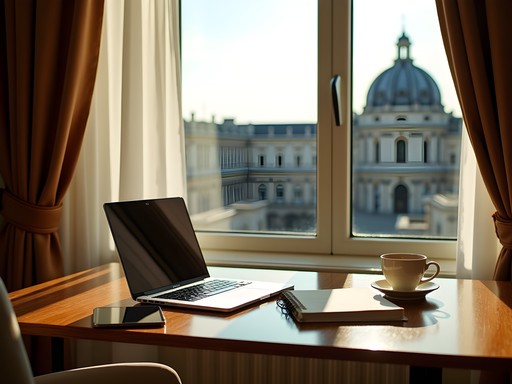
Comments
oceanstar
Really cool! Thanks for sharing
Sophia Gomez
Savannah, I love how you approached Vienna from such a different angle than your usual travel style! I was there last fall for a conference and ended up extending my stay just to soak in the imperial atmosphere. The Belvedere Palace at sunset was absolutely breathtaking - I must have taken 200 photos. One tip for anyone going: book your Schönbrunn Palace tickets online ahead of time. I made the mistake of showing up on a Saturday morning and the line was insane. Also, if you're into classical music like the post mentions, the standing room tickets at the State Opera are incredibly affordable (like €10) and the experience is just as magical as the expensive seats. Did you get a chance to visit any of the Heurigen wine taverns outside the city center?
sunsetblogger
Standing room at the opera is such a good tip!
smartvibes
Going there next month!! Any restaurant recommendations beyond what you mentioned? Traveling with my partner for our anniversary and want to do something special
Savannah Torres
Congratulations! Steirereck in Stadtpark was phenomenal if you want Michelin-starred, or for something more traditional but still elegant, try Plachutta for the best Tafelspitz in the city.
sunsetblogger
Vienna is amazing! The coffee houses are unreal
Sophia Gomez
Right?? I spent an entire afternoon at Café Central just people watching. Which one was your favorite?
sunsetblogger
Café Sperl! Less touristy than Central but still gorgeous
Hunter Thompson
Brilliant post! Though I'll be honest, Vienna on a backpacker budget is a whole different experience lol. I stayed in a hostel near Naschmarkt and lived off käsekrainer and €3.50 wine from the supermarket. BUT - and this is the magic of Vienna - you can still experience so much of the imperial grandeur for free or cheap! The Rathaus, the outside of the palaces, walking through the gardens, even just riding tram 1 around the Ringstrasse is like a free architecture tour. The state opera does standing room tickets for €10-15 if you queue early. Honestly one of my favorite cities in Europe because it doesn't gatekeep the beauty behind massive entrance fees.
backpackzone
This is super helpful! Going in August and trying to keep costs down. Did you need to book the opera standing tickets in advance?
Hunter Thompson
Nope! You queue up about 90 minutes before the performance. Get there early on weekends though, it's popular with locals too.
Bryce Diaz
Savannah, this brings back memories! I spent a week in Vienna back in 2019, and what struck me most was how the city manages to feel both grand and intimate at the same time. I remember sitting in a tiny wine tavern in Grinzing, drinking Grüner Veltliner with locals who'd been coming to the same spot for decades. Then the next morning, I'm standing in the Kunsthistorisches Museum surrounded by Bruegels and Caravaggios. That contrast is what makes Vienna special - it's not just a museum city, it's still very much alive. The Spanish Riding School was a highlight for me too. Have you experienced a performance there?
Savannah Torres
I didn't make it to the Spanish Riding School this trip - only had a long weekend. Definitely on my list for next time! Grinzing sounds wonderful, I focused mostly on the first district this visit.
oceanstar
Love the photos! Adding this to my bucket list
blueace
YES!! Vienna is absolutely stunning. I went last fall and honestly the coffee house culture alone is worth the trip. Spent like 3 hours at Café Central just people watching and eating sachertorte. Did you make it to Schönbrunn Palace? That place blew my mind, way more impressive than Versailles imo. Also pro tip - the public transport is SO easy to use and way cheaper than taxis everywhere.
Savannah Torres
Café Central was incredible! And yes, Schönbrunn was breathtaking - I included it in the palaces section. The gardens alone could take a full day to explore properly.
blueace
Right?? Those gardens are unreal!
sunsetnomad
Vienna is on my bucket list now! Beautiful post!
vacationhero
Heading to Vienna next month! Any specific Viennese dishes you'd recommend trying beyond the obvious wiener schnitzel and sachertorte?
oceanguide
Not the author but don't miss Tafelspitz (boiled beef with apple and horseradish sauce) - it was Emperor Franz Joseph's favorite! Also try Kaiserschmarrn - shredded pancake with fruit compote. So good!
vacationhero
Thanks for the recommendations! Will definitely try both of those 👍
Venture X
Premium card with 2X miles, $300 travel credit, Priority Pass